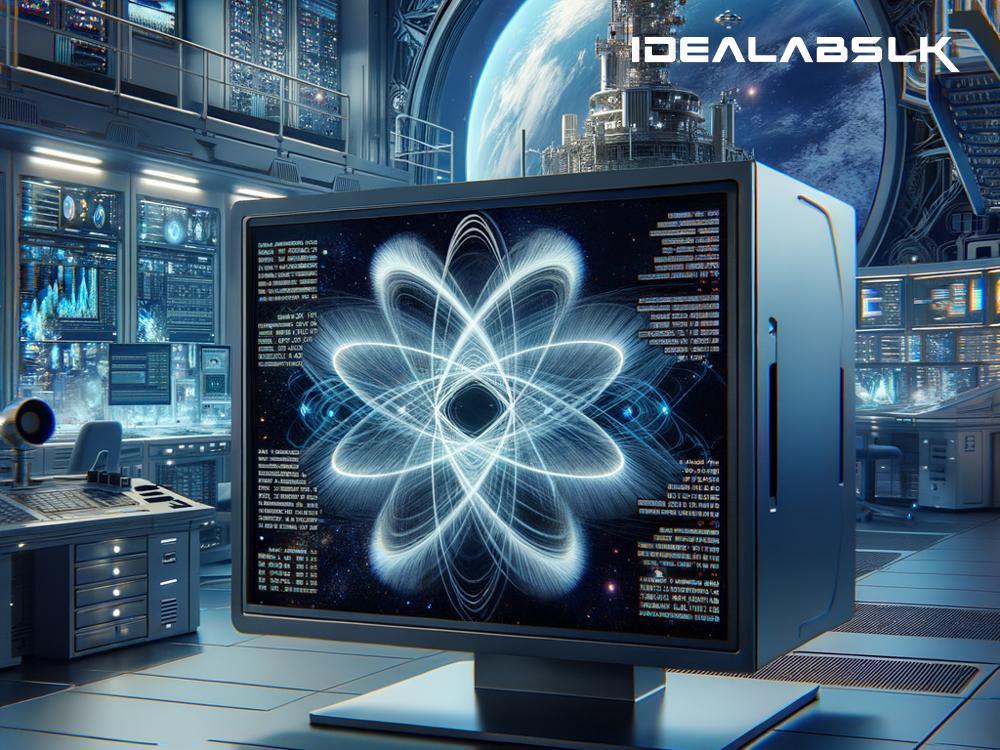How Quantum Computing Will Boost Space Exploration by 2025 Through Revolutionary Data Processing
Have you ever wondered how scientists and astronomers explore the vast, unending universe? Or how they gather and process the heaps of data from stars, planets, and galaxies far, far away? Traditional computers are the current backbone of data processing in space exploration. But there's a new player in town, promising to revolutionize the way we understand and explore space: quantum computing.
Quantum computing is not just your regular upgrade from a desktop to a supercomputer. It's a game-changing technology that operates on the principles of quantum mechanics, the branch of physics that deals with the tiniest particles in the universe - atoms and photons. By 2025, quantum computing is set to supercharge space exploration, making the processing of enormous amounts of space data faster, more efficient, and incredibly accurate. Let's dive into how this will happen.
Speeding Through Space Data
One of the biggest hurdles in space exploration today is the time it takes to process data. Space missions generate tons of data - from high-resolution images of distant galaxies to the intricate details of a planet's atmosphere. With traditional computers, processing this data can take an eternity. Quantum computers, however, operate on qubits, which can represent and process a vast amount of data simultaneously through superposition. This means that quantum computers can analyze complex datasets in a fraction of the time it would take traditional computers, potentially turning years of data analysis into mere days or even hours.
Navigating the Cosmos with Precision
Accuracy in space exploration is non-negotiable. Whether it’s plotting the course for a spacecraft or analyzing the chemical makeup of a distant star, even the slightest error can lead to huge miscalculations. Quantum computers come with the promise of precision. Their ability to perform complex calculations at incredible speeds means that the data they process is highly accurate and reliable. This level of precision could drastically enhance our ability to navigate through space, plan missions, and analyze celestial bodies with unprecedented detail.
Simulating the Universe Like Never Before
Understanding the universe requires us to simulate celestial events — from the formation of stars to the collision of galaxies. However, the sheer complexity and scale of these events make them almost impossible to accurately simulate with traditional computing. Enter quantum computing, with its ability to handle enormous datasets and perform complex calculations at lightning speeds, it opens up the possibility of simulating the universe in ways we've never been able to before. This could help scientists unlock mysteries of the universe, including dark matter, black holes, and the origins of the universe itself.
Decoding Extraterrestrial Messages
Imagine if we received a signal or message from an intelligent extraterrestrial civilization. Deciphering it could be one of the greatest challenges mankind has ever faced. Quantum computing could play a crucial role here, offering extraordinary processing power needed to analyze and possibly understand the complex signals or messages we might receive. This capability could be the key to unlocking interstellar communication and understanding more about civilizations beyond Earth.
The Quantum Leap by 2025
By 2025, quantum computing is poised to become a pivotal tool in space exploration. While it's still an evolving technology, the potential it holds is immense. Governments, space agencies, and private sector players are heavily investing in quantum computing research and development, indicating the confidence in its transformative potential.
Conclusion
As we inch closer to 2025, the fusion of quantum computing and space exploration paints a picture of a future where our understanding of the universe expands exponentially. The processing power of quantum computers will allow us to sift through cosmic data with unprecedented speed and accuracy, simulate complex cosmic events in unparalleled detail, navigate the cosmos with unmatched precision, and even unlock the secrets to extraterrestrial communication. While challenges remain in refining this technology, the progress so far suggests that quantum computing will not only revolutionize space exploration by enhancing data processing but also redefine our place in the universe. The countdown to this exciting era of discovery has just begun, and the prospects for breakthroughs in space exploration are as boundless as the cosmos itself.

